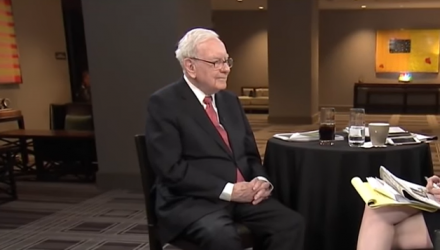By Adam Wong
Recently, I read with some amount of sympathy about the retail investors who lost money investing in Hyflux perpetual securities. For some of them, they lost six-figure sums and hard-earned money meant for their retirement.
For one particular couple who lost over $100,000, The Straits Times reported that the reason why they decided to invest in the ill-fated perpetuals was because Temasek had invested in Hyflux itself. This prompted the national investment fund to release a statement saying that it had exited its investment in Hyflux since 2006 – more than 13 years ago.
I like to believe that this couple aren’t the only ones that invested in Hyflux just because Temasek apparently had a stake in the water and power company. Over the years, I’ve overheard so many investors claim that a stock is a ‘safe’ or ‘good’ investment just because Temasek or some other big-name investor has a stake in it.
(On a side note, I find it paradoxically amusing that a few retail investors who are so confident of Temasek’s backing are the same ones who grumble about Temasek mismanaging their CPF monies. Except Temasek has stated that it doesn’t manage them.)
I mean if Temasek, Li Ka-shing, or Warren Buffett make an investment, surely they – and their phalanx of advisors and analysts — must have done their utmost due diligence, right?
Well, yes. When a big investor makes a multimillion or multibillion-dollar investment, you can be sure that they’ve done their research and analysis to the best of their ability before committing that amount of money. However, just because a big-name investor makes an investment, it doesn’t mean you have to follow suit. Why so?
Here are five reasons why you shouldn’t buy a stock just because a big-name investor owns it:
1. You have different financial needs and goals
Warren Buffett is a multibillionaire and one of the richest men in the world, so you can be sure that he’s not investing to save up for his retirement. (Actually, I don’t think he’ll ever retire.) A business magnate is investing because he may have plans to do a hostile takeover of a rival company. A sovereign wealth fund is investing to grow a nation’s wealth and protect its national interests. All of them are investing for a range of different business, strategic, or economic reasons.
On the other hand, you have your own unique financial needs and investment goals. You could be investing because you want to prepare for retirement, or to grow a stream of passive dividend income, or to save up for your children’s education, or to fund a purchase a few years down the road. Therefore, what makes sense as an investment to a big investor may not necessarily make sense for you.
For example, if you’re looking for dividend income, then an investment in Apple may not be the most suitable for you since it pays such a low yield (~1.5%) – regardless of Buffett owning the stock. So always ask yourself whether a particular investment suits your individual needs and investment goals. If not, then it may be better to pass it up.
2. You have different risk tolerances
Everyone reacts to uncertainty differently. Some people love the thrill of exploring a new city, while others get a heart attack just because the taxi driver decided to take a different route to the office this morning.
Investors too have different tolerances to uncertainty and risk. Some investors have no qualms investing in a hyper-growth stock that may crash at the first sign of trouble. While others can’t bear the thought of losing any money at all and prefer sticking to safe investments like government bonds.
Ask yourself: How would you react if the value of your investment dropped by 5% in a year?
What if it dropped by 10%?
And what if it dropped by… 40%?








